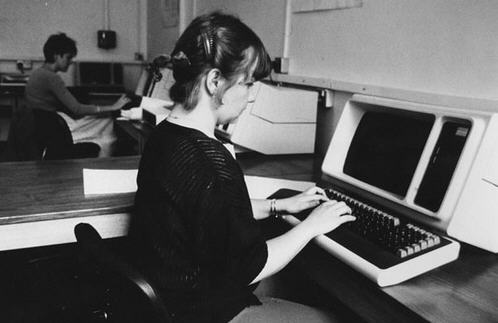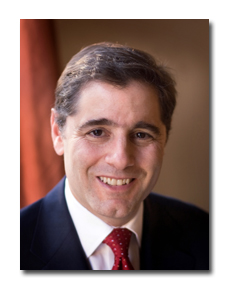
It's time to modernize school technology
(Credit: London School of Economics, 1981 -- via Flickr Creative Commons)
The Federal Communications Commission on Thursday voted to modernize E-Rate. E-Rate was established in 1996 to provide federal subsidies to schools and libraries for telecommunications and Internet access. Back then, many schools were still on dial-up and the broadband available was sluggish by today's standards. What's more, the Internet was something people accessed from desks, not mobile devices.
Under the new rules, schools will be encouraged to upgrade to 1 gigabit, which is a thousand times faster than the 1 megabit service that many schools use today.
Mobile and Community Access
Another provision of the new rules provides pilot program for mobile access. Although still relatively rare, some schools are using smartphones, iPads, iPod Touches, Netbooks and laptops as part of the learning process and now at least a few schools will be able to use E-Rate funding to equip students with devices that let them access learning materials not only from school but from home, in-between school and home or wherever they happen to be. In a speech he gave on Monday at Common Sense Media's "Back to School Event" in Mountain View, California, FCC Chairman Julius Genachowski talked about how mobile technology can replace the "50 pound backpacks" full of books that many of our kids are carrying. For more on mobile learning see Cellphones & school: a great mix by Anne Collier who is editor of NetFamilyNews and my co-director at ConnectSafely.org.
Another provision of the new rules allows schools to offer broadband services to local communities during non-school hours. In theory it might be possible for schools to set up their wireless networks for their neighbors, especially now that the FCC also approved so-called "Super WiFi" which uses the white space between TV channels as unlicensed spectrum for signals that can travel much further than current WiFi.
Schools Can Still Over-Block
One issue that the agency didn't address is that a 2000 federal law, The Children's Internet Protection Act (CIPA), requires schools and libraries that receive E-Rate to filter Internet access to prevent kids from accessing "visual depictions deemed obscene, pornographic, or harmful to minors." While I have no qualms about blocking porn and gratuitous violence, it's unfortunate that the filters at many schools also block access to social networking sites, including Facebook.
While it is certainly possible for students (and the rest of us) to waste precious time on Facebook, there are also plenty of educational opportunities afforded by Facebook and other social networking tools. Away from school kids are using these tools not only to socialize, but to share their creative works and to collaborate on projects. If schools are truly going to prepare youth for living, learning and working the the 21st century, they have to embrace 21st century technology which means more than just putting them in front of computers or even mobile devices to consume learning materials. Kids also need to be encouraged to create content and share it with others. They do that anyway, so why not make it part of what they do at school with appropriate supervision, guidance and educational incentives.
My Interview with FCC Chairman

Julius Genachowski
For more on this, please read about and listen to my recent CBS News & CNET interview with FCC Chairman Julius Genachowski.
For the latest on Internet safety and youth online risk, visit SafeKids.com